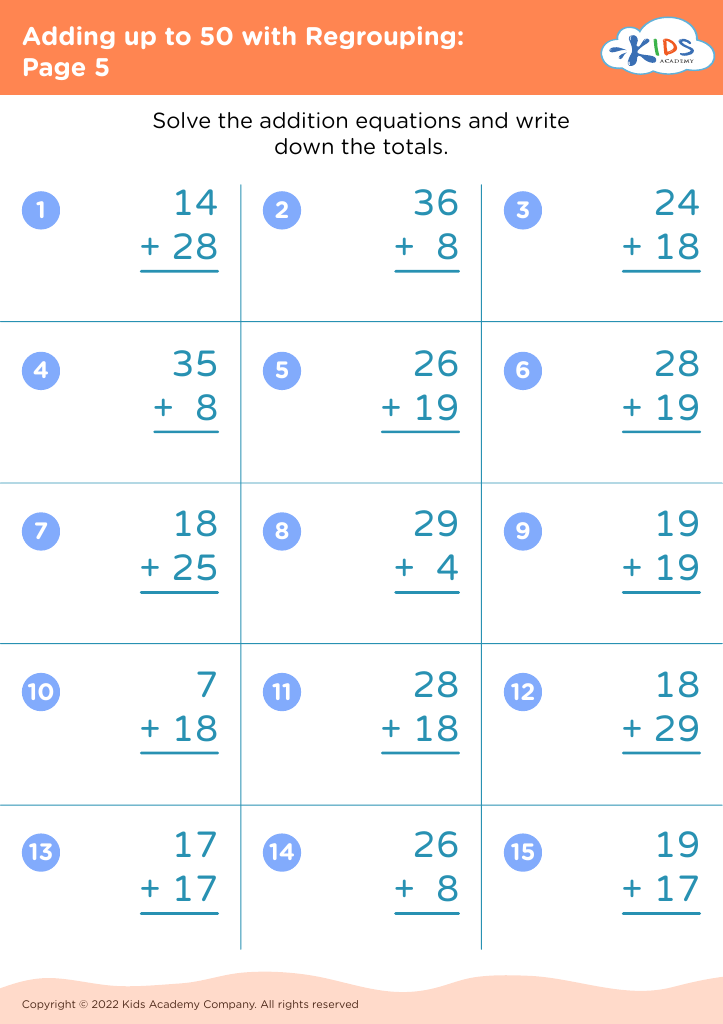Fraction comparison Adding up to 50 Worksheets for Ages 3-7
7 filtered results
-
From - To
Introduce the foundational skill of fraction comparison with our engaging worksheets designed for ages 3-7. Our "Fraction Comparison Adding up to 50" worksheets make learning fun and accessible, helping young learners grasp essential math concepts. These printables are specifically crafted to foster understanding and confidence in comparing fractions, setting a strong base for future math success. Each worksheet features vibrant visuals and interactive exercises to make math enjoyable and educational. Perfect for both classroom and at-home practice, our resources support early math learning and encourage a positive attitude towards numbers from the start!
Parents and teachers play a crucial role in fostering early numeracy skills in children aged 3-7. Introducing concepts like fraction comparison and adding up to 50 provides a solid mathematical foundation essential for future learning. Among these early concepts, understanding fractions helps children learn about parts of a whole, sharing, and dividing equally—skills vital for everyday activities like cooking, dividing toys, or sharing snacks.
Having children compare fractions introduces them to the idea of relative size, reinforcing their understanding of more and less. This activity not only lays the groundwork for more complex math but also sharpens their logical thinking and problem-solving abilities.
Adding up to 50 aids in teaching addition and helps children grasp how numbers build upon each other. Mastery in basic addition paves the way for more complex arithmetic and analyses. Tasks like comparing fractions and simple additions also enhance children’s concentration and memory retention.
Starting math education early fosters a positive attitude towards the subject, reduces anxiety about mathematics, and builds confidence. Parents and teachers who focus on these concepts help kids develop critical thinking skills and a love for learning, which will benefit them throughout their education and daily life.
























